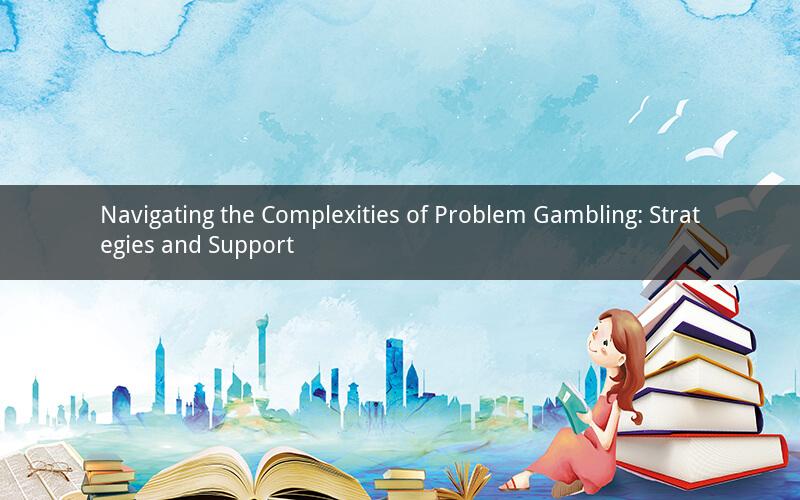
Introduction:
Problem gambling is a significant concern that affects individuals, families, and communities worldwide. It is characterized by an uncontrollable urge to gamble, leading to negative consequences in various aspects of life. Dealing with a problem gambler can be challenging, but understanding the dynamics and implementing effective strategies can make a substantial difference. This article explores various approaches to address problem gambling, including recognizing the signs, providing support, and seeking professional help.
Understanding Problem Gambling:
1. Definition and Impact:
Problem gambling refers to the compulsive need to gamble despite negative consequences. It can lead to financial, emotional, and social distress. Understanding the impact of problem gambling on individuals and their loved ones is crucial in developing appropriate strategies to deal with the issue.
2. Recognizing the Signs:
Identifying the signs of problem gambling is the first step towards addressing the issue. Common signs include hiding gambling activities, borrowing money, neglecting responsibilities, and experiencing mood swings. Recognizing these signs can help in providing the necessary support and intervention.
3. The Importance of Communication:
Effective communication is essential when dealing with a problem gambler. Open and honest conversations can help in understanding the extent of the problem and seeking appropriate solutions. It is crucial to approach these discussions with empathy, understanding, and support.
Strategies to Address Problem Gambling:
1. Encouraging Self-Reflection:
Encouraging the problem gambler to reflect on their behavior can be beneficial. This can involve self-assessment questionnaires or professional assessments. Self-reflection can help in acknowledging the problem and taking responsibility for change.
2. Setting Boundaries and Limits:
Helping the problem gambler set clear boundaries and limits can be effective in preventing relapse. This can include setting financial limits, avoiding triggering environments, and seeking support from family and friends.
3. Financial Management:
Assisting the problem gambler in managing their finances is crucial in addressing the financial consequences of gambling. This may involve creating a budget, seeking financial counseling, and exploring options for debt relief.
4. Seeking Professional Help:
Professional help is often necessary in dealing with problem gambling. Therapy, counseling, and support groups can provide valuable tools and strategies for overcoming addiction. Encouraging the problem gambler to seek professional help is an important step in their recovery journey.
Supporting the Problem Gambler:
1. Building a Supportive Environment:
Creating a supportive environment for the problem gambler is crucial. This involves offering empathy, understanding, and encouragement. It is important to avoid judgment, criticism, or enabling behaviors that may worsen the situation.
2. Encouraging Open Communication:
Maintaining open communication channels with the problem gambler is essential. This allows for regular discussions about their progress, challenges, and concerns. Encouraging honesty and expressing support can foster trust and motivation for change.
3. Providing Resources and Information:
Providing the problem gambler with resources and information about available support services can be helpful. This may include directories of counseling centers, support groups, and helplines. Access to these resources can empower the problem gambler to seek help and connect with others who have experienced similar challenges.
Conclusion:
Dealing with a problem gambler requires empathy, understanding, and a commitment to providing support. By recognizing the signs, implementing effective strategies, and seeking professional help, individuals can navigate the complexities of problem gambling and work towards a healthier and more fulfilling life.
Questions and Answers:
1. How can I determine if someone is a problem gambler?
To determine if someone is a problem gambler, look for signs such as hiding gambling activities, borrowing money, neglecting responsibilities, and experiencing mood swings. If you notice a pattern of problematic behavior and negative consequences, it may be an indication of problem gambling.
2. What should I do if I suspect a loved one is a problem gambler?
If you suspect a loved one is a problem gambler, start by expressing your concerns in a non-confrontational manner. Encourage open communication and offer your support. Help them recognize the signs of problem gambling and explore available resources and support options.
3. How can I help a problem gambler set boundaries and limits?
Helping a problem gambler set boundaries and limits involves discussing their triggers and creating a plan to avoid them. Encourage them to establish financial limits, seek support from trusted individuals, and develop alternative activities to fill their time.
4. What resources are available for problem gamblers and their families?
There are various resources available for problem gamblers and their families. These include counseling centers, support groups, helplines, and online forums. Researching local and national organizations can provide access to professional help and community support.
5. Can problem gambling be cured?
Problem gambling is a complex issue, but it can be managed and overcome with proper support and treatment. While there is no guaranteed cure, seeking professional help, participating in therapy, and implementing effective strategies can significantly improve the individual's chances of recovery.